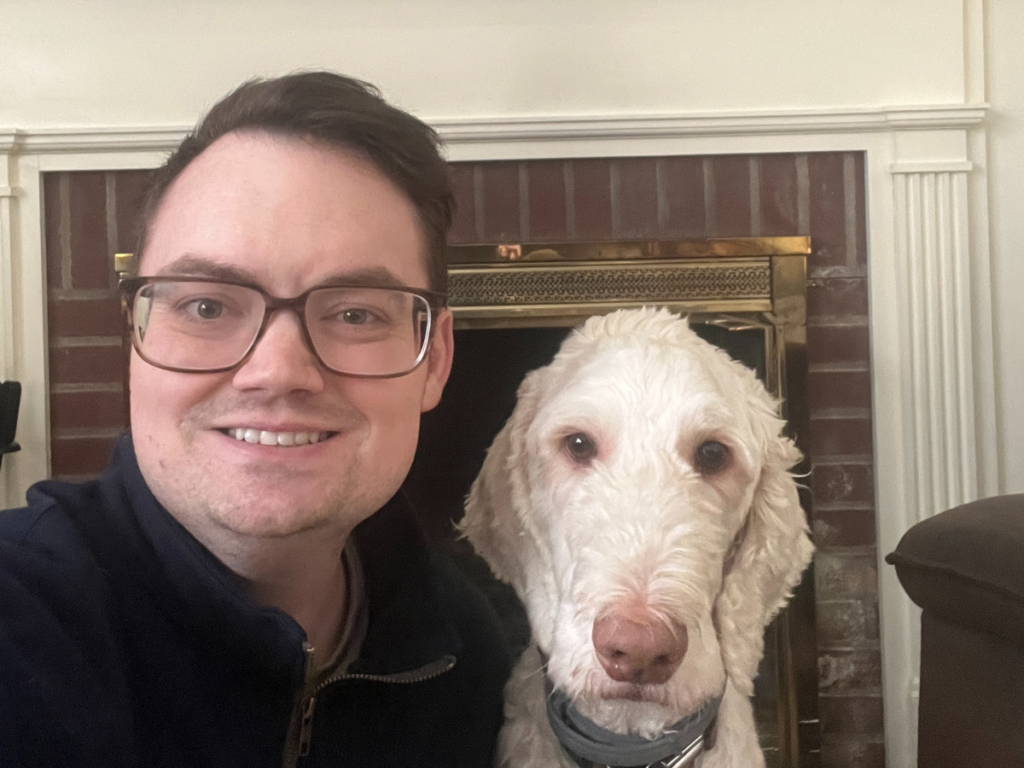
Preparation and planning can go a long way in helping you feel more confident when starting any new experience, including taking courses for the first time at Penn State World Campus. We reached out to a group of current World Campus students to get their advice for students about to start their first semester — and some tips for staying organized.
Advice to help you prepare
“Starting your first semester is an exciting and transformative experience. To set yourself up for success, begin by getting organized before classes start. Familiarize yourself with your class schedule and campus layout to reduce first-day anxiety. Gather all necessary supplies like notebooks, pens, and any required textbooks. Creating a dedicated, distraction-free study area at home can also make a big difference. Setting academic and personal goals for the semester can help keep you focused and motivated. Additionally, don’t hesitate to reach out to professors or academic advisers with any questions or concerns — they’re there to help!” —Deja Bryant, Bachelor of Science in Political Science
“For students preparing to start their first semester, careful consideration of time management and organization is crucial. Balancing school, work, and personal life requires thoughtful planning when enrolling in courses. Every student can succeed, but it demands effective time management. This means allocating extra time for studying, reaching out to professors, or working on assignments to avoid feeling overwhelmed and to prevent poor grades.” —Kaitlyn Casagrande, Bachelor of Science in Psychology and Bachelor of Science in Criminal Justice
“I would say if you need help or extra resources, definitely ask for help. There were so many resources available that I didn’t know [are] available. Read all the instructions on how to work Canvas and [review] deadlines. Don’t be afraid to reach out to your adviser for any concerns you may have. Take advantage of the tutor options available.” —Christina Aviles, Bachelor of Arts in Digital Journalism and Media
“Joining Penn State World Campus is a privilege and honor. The virtual degree platform, which is complimentary to many adult learners, offers great academic, personal, and professional rewards; however, it does come with its challenges. Unlike traditional students, we are a unique breed that has to prioritize self-care and study time, with everything else that demands our attention. If you are pursuing your degree with a family, get everyone onboard and excited about what you are doing. Then be deliberate in creating (and protecting) your study space and time. Lastly, be social! Often the convenience of online learning trivializes the importance of investing in our social health. We have great faculty, staff, and students who are rooting for our success! We are a community.” —Conette Burney, Bachelor of Science in Integrated Social Sciences
Tips for staying organized
“Staying organized is crucial for managing assignments and deadlines effectively. Use a planner or digital calendar to keep track of important dates such as exams, project deadlines, and study sessions. Break down larger tasks into smaller, manageable steps and prioritize them based on due dates and difficulty. Regularly reviewing and updating your schedule will help you stay on top of your workload and avoid last-minute stress. Developing a consistent study routine and regularly checking your syllabus can also ensure that you’re always prepared and ahead of your course work. Balancing academic responsibilities with self-care is key to maintaining overall well-being throughout the semester.” —Deja Bryant
“Try and develop a rhythm. It’s up to you to complete and initiate most things for class. So, to stay organized, I try and develop a color-coordinated guide in One Note. And from there, I get into a habit of doing the same routine. My best tips are to stay focused and pace yourself. Do so much each day. When you’re [at] World Campus, it’s easier to do a little every day rather than take a day off.” —Ryan Bitner, Bachelor of Science in Recreation, Park, and Tourism Management
“Organization goes hand in hand with time management. Planning when to complete tasks and setting aside time for yourself is vital for success. From my experience, using an agenda for school, work, and meetings has been immensely helpful. I rely on a whiteboard, a daily planner, and the app Notion to keep track of due dates, compare them with my daily schedule, and find suitable times to study and complete assignments. Additionally, I use the first two to three weeks as an “experimental” period. During this time, courses are usually less content-heavy as they focus on introductions. I use this period to determine what study methods and schedules work best for each course. By the fourth week, I am more organized and have a clear understanding of what to expect, setting myself up for success for the rest of the semester.” —Kaitlyn Casagrande
“Buy a planner! The best thing to do is to write down all of the assignments’ due dates. Yes, they are on the calendar and syllabus on Canvas, but this gives you time to work on major projects that may be due later in the semester. It is also nice being able to cross assignments off and knowing what your week will look like compared to meetings, assignments, and other obligations.” —Gina Bakey, Bachelor of Science in Recreation, Park, and Tourism Management
“Online learning is very different from going in person. You have to set up a time every day to do school work or you will fall behind and never really catch back up. Most classes have due dates at the middle and end of the week, so once you have it down, it works on almost every class.” —Christopher Witthaut, Bachelor of Science in Software Engineering
“I rely very heavily on Canvas, the learning app that Penn State uses. Keeping on top of the assignments and notifications from instructors on there saves a lot of time. I haven’t encountered any instructors yet that do not post weekly reminders of what is expected of you in that week.” —Erin Robertson, Bachelor of Science in Psychology
Related content:
- Starting Strong: Tips from One New Student to the Next — A former World Campus student shares lessons she learned during her first semester
- Get Ready for a New Semester — We’ve compiled some resources to help you prepare for the semester



